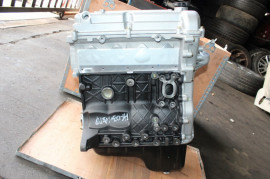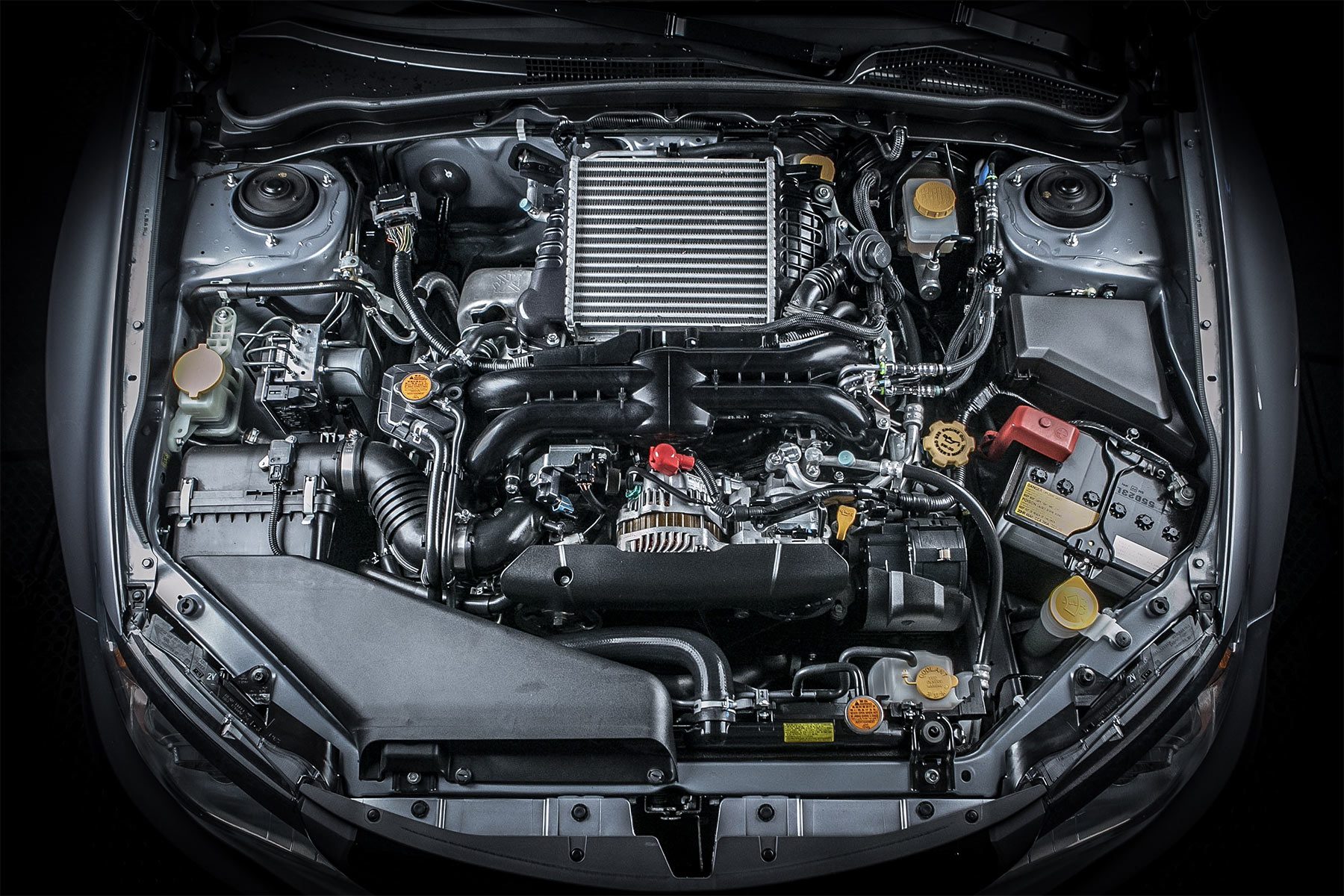Enhancing Your Vehicle's Efficiency with Import Engines
Enhancing Your Vehicle's Efficiency with Import Engines
Blog Article
Exploring the most recent Technical Technologies in Import Engines and Just How They Enhance Driving Experience
In the realm of automobile engineering, the landscape of import engines is going through a profound improvement driven by innovative technical technologies. From the evolution of turbocharged engines to the integration of hybrid technology, the newest improvements are changing the driving experience in ways formerly unimaginable. As import suppliers press the borders of efficiency and performance via boosted gas shot systems and sophisticated engine management services, the concern occurs: Just how do these innovations truly impact the way we interact with our vehicles on the road?

Evolution of Turbocharged Engines
In the auto sector, the advancement of turbocharged engines has actually significantly changed the landscape of efficiency and performance. Turbocharging, as soon as largely seen in high-performance cars, has currently end up being a mainstream innovation taken on by a vast array of automobiles, from portable hatchbacks to deluxe sedans. The fundamental concept behind a turbocharged engine is basic yet efficient - by forcing even more air into the combustion chamber, it permits more fuel to be melted, leading to increased power result.
One of the key benefits of turbocharged engines is their ability to supply more power from smaller, more fuel-efficient engines. This scaling down pattern has actually caused a reduction in exhausts without jeopardizing efficiency, making turbocharging an appealing option for car manufacturers striving to satisfy strict environmental guidelines. Additionally, turbocharged engines offer enhanced torque at lower RPMs, giving drivers with an extra responsive and vibrant driving experience - import engines.
As technology remains to breakthrough, we can expect additional innovations in turbocharging, resulting in also greater levels of efficiency and performance in the automotive market.
Innovations in Fuel Injection Solutions
With the continuous progression of automobile modern technology, significant developments have actually been made in gas shot systems. Modern fuel injection systems have progressed to supply fuel much more effectively and specifically right into the engine cyndrical tubes, improving overall engine performance and fuel effectiveness. Among the key developments in gas shot systems is the change from typical port fuel injection (PFI) to more advanced direct fuel injection (DFI) innovation. DFI systems infuse gas straight right into the burning chamber at high stress, resulting in better gas atomization and burning, leading to enhanced power output and decreased discharges.
Furthermore, the integration of digital control devices (ECUs) and sensing units in gas injection systems has enabled for real-time modifications to fuel delivery based upon numerous variables such as engine lots, temperature level, and driving problems. This degree of accuracy ensures optimal fuel-air mix ratios, making best use of engine efficiency while decreasing fuel consumption and emissions. Additionally, advancements in gas injector layout, materials, and spray patterns have added to cleaner combustion and smoother engine operation. In final thought, the continuous technologies in gas injection systems play an important role in enhancing driving experience by giving enhanced efficiency, gas economy, and ecological friendliness.
Assimilation of Hybrid Modern Technology
The advancement of fuel injection systems in the direction of higher efficiency and performance has established the phase for the seamless integration of crossbreed modern technology right into modern engines. Hybrid innovation incorporates making use of conventional inner burning engines with electrical propulsion systems, offering enhanced fuel effectiveness and lowered emissions. By integrating electric motors and batteries into the powertrain, hybrid engines can supplement the internal combustion engine during velocity or low-speed driving, therefore improving general performance.

Boosted Engine Monitoring Solution
What are the key improvements in engine monitoring systems that are enhancing the performance and efficiency of modern engines? Engine administration systems have actually undertaken substantial advancements to optimize engine performance and efficiency. One essential advancement is the assimilation of innovative sensing units that continually monitor various parameters such as engine temperature, air-fuel ratio, and exhaust emissions. These sensors provide real-time data to the engine control system (ECU), enabling for exact modifications to be made to optimize combustion processes and fuel effectiveness.
Furthermore, modern-day engine administration systems utilize innovative formulas and synthetic intelligence to assess the information collected by sensing units and make dynamic adjustments to variables such as ignition timing, fuel shot, and turbocharger boost stress. This degree of precision and flexibility cause boosted engine responsiveness, boosted power output, and lowered fuel intake.
Furthermore, engine management systems currently feature sophisticated diagnostic capacities that can discover and address concerns such as misfires, sensor breakdowns, and fuel system abnormalities in real-time, thus boosting general engine integrity and durability. These advancements in engine administration systems play an essential role in boosting the driving experience by delivering ideal efficiency, fuel effectiveness, and integrity.
Effect of Lightweight Products
Incorporating lightweight products in engine manufacturing has changed the automobile market's strategy to enhancing fuel performance and efficiency. Making use of materials such as carbon fiber, light weight aluminum, and titanium has substantially lowered the total weight of engines, resulting in enhanced power-to-weight proportions and raised gas economy. These lightweight products use a greater strength-to-weight proportion compared to conventional materials like steel, enabling for better durability without jeopardizing performance.
One of the essential benefits of utilizing lightweight materials in engine building and construction is the decrease of inertia, resulting in quicker engine response times and enhanced overall car agility. Furthermore, the lighter weight contributes to reduce energy usage, making cars much more ecologically pleasant by minimizing exhausts.
Moreover, the execution of light-weight products in engine elements such as pistons, attaching rods, and crankshafts has actually made it possible for designers to press the borders of efficiency without giving up integrity (import engines). This advancement has paved the method for much more powerful and reliable engines that his comment is here deliver a superior find out this here driving experience while fulfilling rigid discharges standards
Conclusion
In final thought, the most recent technological innovations in import engines have actually substantially enhanced the driving experience. From the evolution of turbocharged engines to innovations in fuel injection systems, assimilation of hybrid technology, boosted engine management systems, and the usage of light-weight materials, these technologies have collectively enhanced performance, gas efficiency, and total driving dynamics. As modern technology continues to breakthrough, we can expect also extra interesting growths in the future of import engines.
Modern gas injection systems have actually developed to supply fuel more successfully and precisely right into the engine cyndrical tubes, enhancing general engine performance and fuel performance - import engines. By integrating electrical motors and batteries into the powertrain, crossbreed engines can supplement the internal burning engine during velocity or low-speed driving, thereby boosting overall efficiency
What are the key advancements in engine monitoring systems that are enhancing the efficiency and effectiveness of modern-day engines? Engine management systems have actually gone through significant improvements to optimize engine performance and performance. From the development of turbocharged engines to innovations in fuel shot systems, integration of crossbreed modern technology, improved engine administration systems, and the use of light-weight products, these innovations have jointly boosted performance, fuel effectiveness, and total driving characteristics.
Report this page